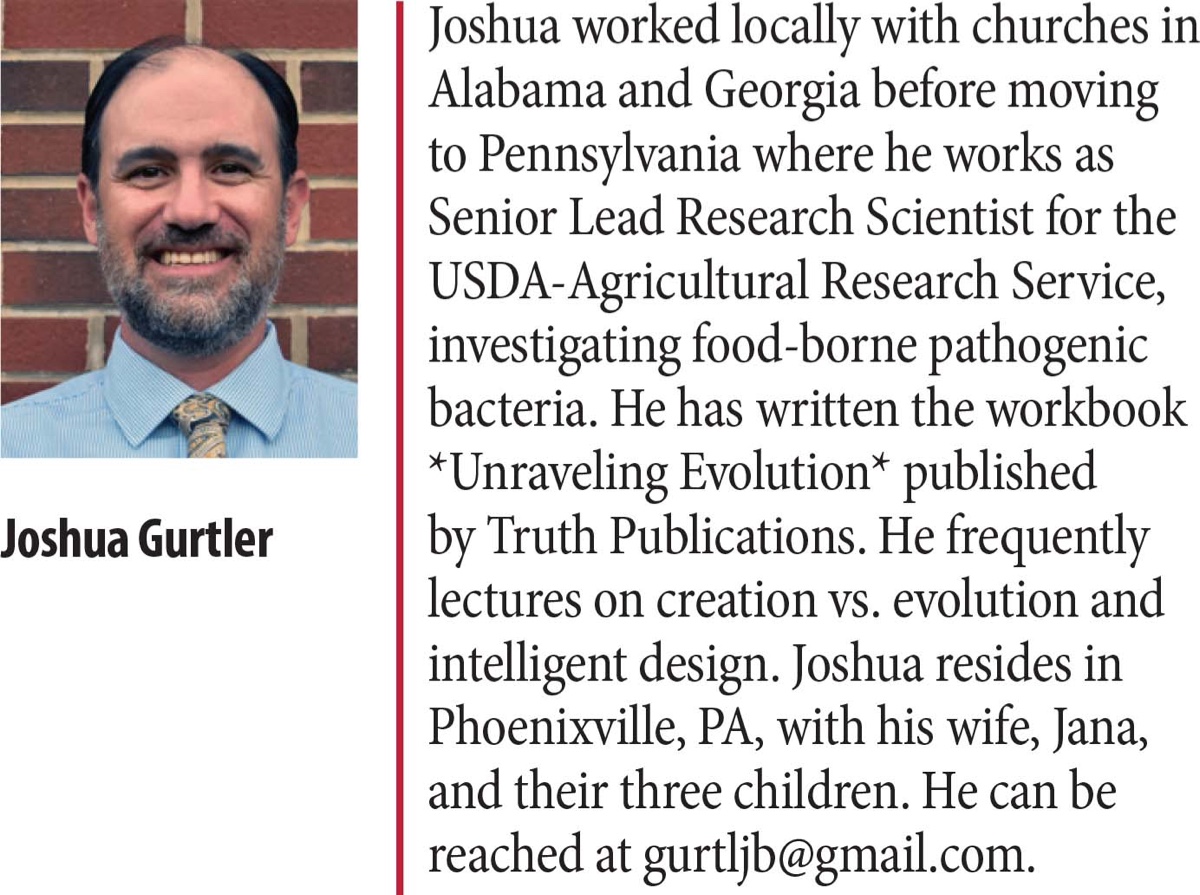by Joshua Gurtler
Synopsis: We should encourage our children to find God in science by exploring nature–bolstering their faith in the Christ, preparing for attacks by secularists, and responding to the same with a reasoned, rational, and scriptural response.
What is science? Science originally meant knowledge, as in 1 Timothy 6:19-21, which exhorts “. . .avoiding vain babblings, and oppositions of science falsely so called” (KJV). Science, here, is from the Greek gnosis, meaning “knowledge” or “knowing.” During recent centuries, however, science has more commonly come to mean the methodologies or techniques used to gain knowledge, as Merriam-Webster’s third definition states: “knowledge or a system of knowledge covering general truths or the operation of general laws especially as obtained and tested through scientific method.”
Humanists often affirm that science only began to flourish after the western world was unshackled from the dark ages and authority of “the church” during the ensuing Age of Enlightenment—and that the Bible and science are diametrically opposed. However, the roots of modern science are grounded in the work of Bible believers. While operational science had many false starts in ancient Arabia, China, Greece and Rome, it was birthed and flourished in Bible-believing western Europe.
During this period, believing scientists were governed by two biblical assumptions. First, they assumed the Creator designed the universe to function in an orderly manner with established laws. They based this belief on the fact that God is “not the author of confusion” (1 Cor. 14:33), nor is He fickle and capricious, changing laws at will, as did the pagan gods. The stability of natural laws and patterns is stated in Genesis 8:22, which affirms, “While the earth remains, seedtime and harvest, cold and heat, winter and summer, and day and night shall not cease.” Furthermore, we are told that Christ holds all these laws in place: “who being the brightness of His glory and the express image of His person, and upholding all things by the word of His power” (Heb. 1:3), and “He is before all things and in Him all things hold together” (Col. 1:17, NASB). Naturalists, objecting to the Bible as the foundation for science, have no grounds on which to stand, because without an intelligent designer, there would be no natural “laws,” and we would live in a purposeless, happenstance universe, resulting in unpredictable natural phenomena with no scientific repeatability.
Second, these early believing scientists assumed God gave mankind the task of scrutinizing creation from Genesis 1:28, where He told Adam to “fill the earth and subdue it.” In short, they were attempting to find God’s hand in nature by investigating how it works. This pursuit led directly to formation of the scientific method. As explained by Rodney Stark, “Science was not the work of western secularists or even deists; it was entirely the work of devout believers in an active, conscious, creator God” (See Note #1). As Dr. Peter Harrison, Professor at Oxford University, stated, “Had it not been for the rise of the literal interpretation of the Bible and the subsequent appropriation of Biblical narratives by early modern scientists, modern science may not have arisen at all” (See Note #2).
Some of these early creation scientists, either involved in developing the scientific method or in its application, include Gerardus Mercator (1512-1594), cartography; Francis Bacon (1561-1626), the classical scientific method; Galileo Galilei (1564-1642), astronomy, physics; Johannes Kepler (1571-1630), astronomy; Blaise Pascal (1623-1662), the barometer, probability, hydrostatics; Robert Boyle (1627-1691), gas dynamics, chemistry; Isaac Newton (1642-1727), law of gravity, law of cooling, spectrum of light, co-inventor of calculus, dynamics, reflecting telescope; Gottfried Wilhelm Leibnitz (1646-1716), co-inventor of calculus, mathematics; Carolus Linnaeus (1707-1778), biological classification system, taxonomy; and John Dalton (1766-1844) gas law, atomic theory.
Science should be about discovering the most logical or likely solution, not simply the most naturalistic explanation, no matter how absurd the conclusion. Bible believers are accused of being narrow-minded, failing to consider all evidence. The naturalists’ worldview, however, is the constricted one, wherein they only accept naturalistic explanations. Their worldview also denies the possibility that an omnipotent God and past biblical events molded the earth’s landscape and affected the history of nature.
Generally, two types of science exist today—only one follows the scientific method: operational science. Operational science (birthed by Bible-believing scientists) conducts experiments to determine how natural processes work. On the other hand, origin science (which includes Neo-Darwinism) does not use the scientific method; instead, it employs assumptions based on circumstantial evidence to explain what happened in the past. Conflicts between believers and unbelievers arise, not based on operational science, but based on origin science. This is because these two groups begin at two different starting points. Unbelievers start with a purely naturalistic worldview, while believers start with a biblical worldview.
If God created everything (Gen. 1:1), then He expects man to learn from nature, gaining knowledge and applying it through wisdom (Prov. 4:5,7; Ps. 19:1-4). God is the Father of science as the “first cause” of all things: “Every house is built by someone, but he who builds all things is God” (Heb. 3:4). The apostle Paul says we can see God’s hand in nature. He said, “For since the creation of the world, His invisible attributes are clearly seen, being understood by the things that are made” (Rom. 1:20). We are also told that nature can only hold together because Jesus upholds “all things by the word of His power” (Heb. 1:3) and “in Him all things hold together” (Col. 1:17).
We should teach our children that God cannot be “put in a test tube.” That which is spirit is not subject to the scientific method and the laws of operational science (John 4:24). Nonetheless, we have a world of scientific evidence supporting intelligent design. If one could put God in a test tube, He wouldn’t be God, He would be creation, because only the created can be tested by operational science. Only the Christian worldview makes sense of the ordered, law-abiding creation around us. Therefore, we should seek to understand how nature functions, hence finding God in science.
Parents can help children discover God in science by exploring the world around them, finding God in His intelligently designed animals, insects, trees, flowers, etc. Parents can point out the intricate workings of the stellar creation in the nights’ skies (Ps. 19:1-6). Object lessons of science can be taught in activities such as hiking, camping, fishing and spending time in nature, while relating to them all the splendor of the Creator’s marvelous hand on their individual levels of understanding.
As Christians, we should strengthen our faith in the Creator’s word, with which we can “extinguish all the flaming arrows of the evil one” (Eph. 6:16; 1 Pet. 3:15). That doesn’t mean we will always have all the answers. Children need to be taught to be “wise as serpents and harmless as doves” (Matt. 10:16). Young people often will not have a well-thought-through response to complicated questions. Teach your children, in this case, to regroup by discussing these questions with godly Bible teachers, and reading good apologetic materials and then respond with a reasoned defense.
Above all, children should be taught to grow their relationship in the Lord and “put on the whole armor of God, that you may be able to withstand in the evil day, and having done all to stand” (Eph. 6:13). In this way, they can know God through his written revelation as well as find God in an exploration of the natural world—through science.
Note #1: Stark, Rodney. For the Glory of God: How Monotheism Led to Reformations, Science, Witch-Hunts, and the End of Slavery. Princeton University Press, 2004. https://press.princeton.edu/books/paperback/9780691119502/for-the-glory-of-god.
Note #2: Harrison, Peter. “The Bible and the Rise of Science.” Australasian Science, 23 (3):14-15, April 2002. http://www.australasianscience.com.au/


